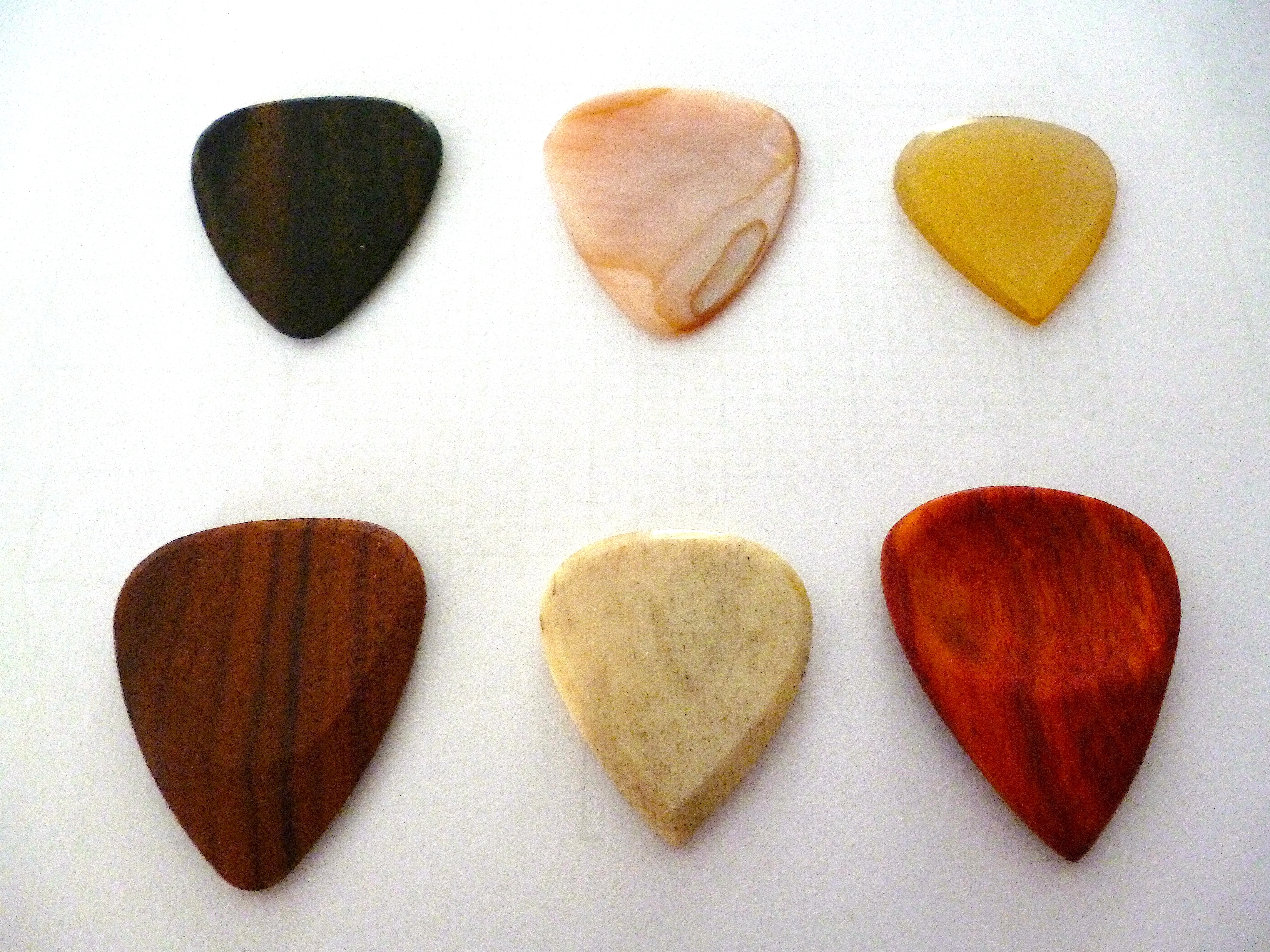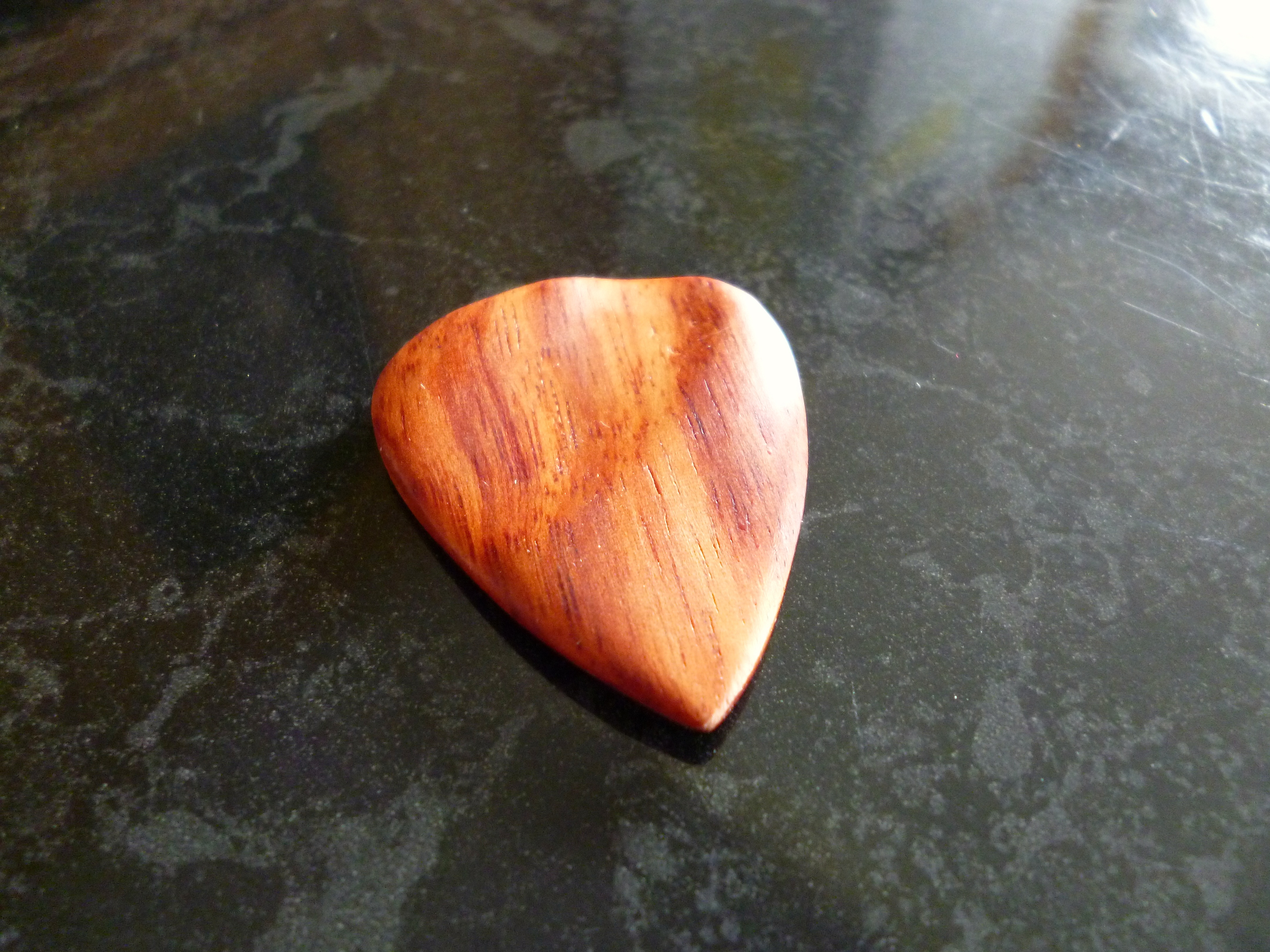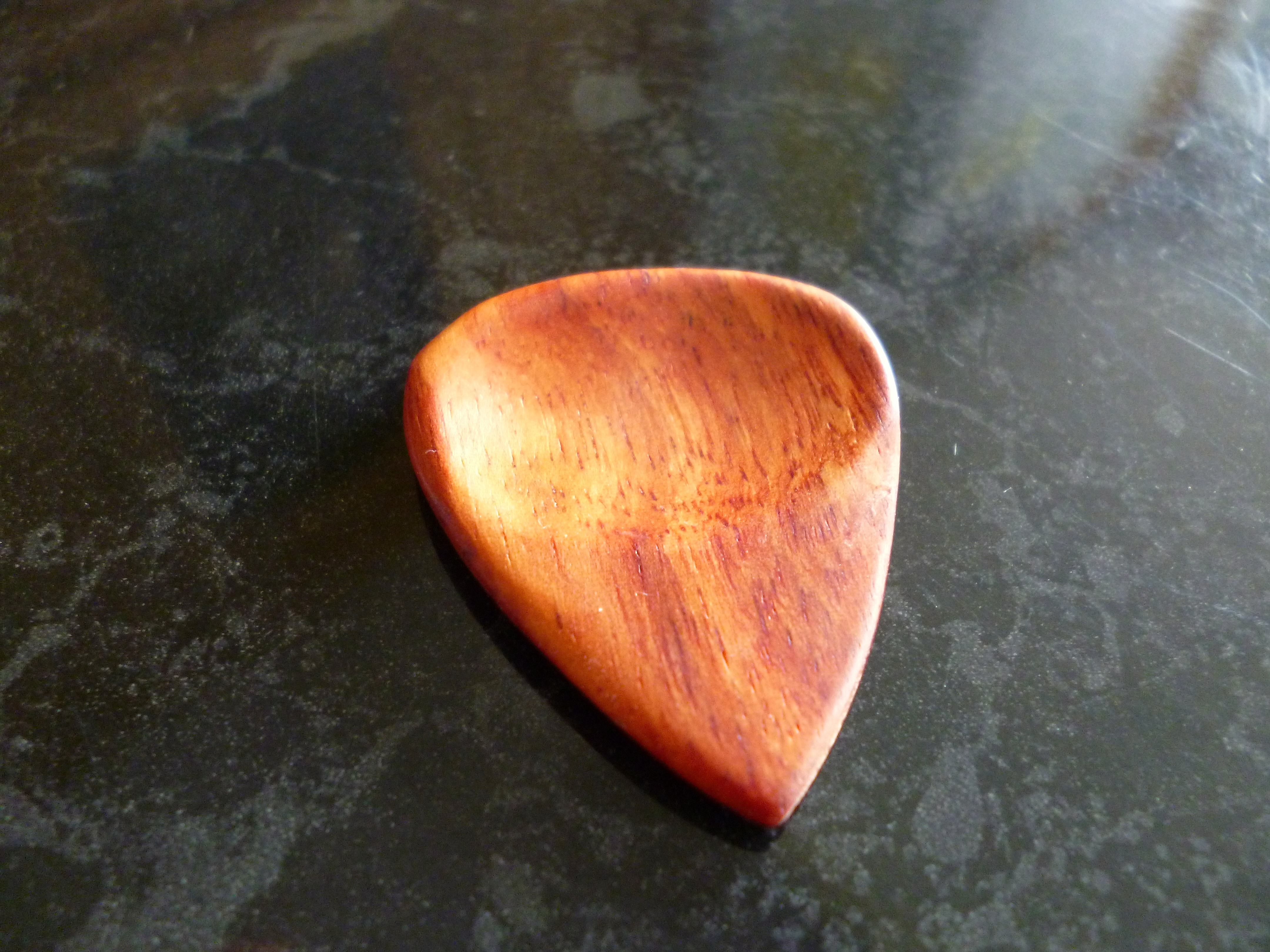Hands-on with Timber Tones picks
Exquisite picks made from wood, bone, leather and shells
Want all the hottest music and gear news, reviews, deals, features and more, direct to your inbox? Sign up here.
You are now subscribed
Your newsletter sign-up was successful

Timber Tones 6 picks

Groovy Tones Royal Blood Rosewood (indent groove on fingerside of pick)

Groovy Tones Royal Blood Rosewood (indent groove on thumb side of pick
Picks can be some of the least wallet stretching purchases a guitarist can ever make. Considering they can have a huge effect on how you play, it's fun (and relatively cheap) to try out as many picks as you can to see what suits best.
Certainly, there are numerous companies offering different sizes and thicknesses so you're positively spoilt for choice! If you're keen to explore, no company (to our knowledge) offers as broad a variety of materials as UK based Timber Tones.
Indeed, rather than produce plastic-based picks that most of us use, they instead manufacture picks made from hard woods like Ebony and Bubinga through to mussel shell and buffalo bone. It's worth stating, all these materials are eco friendly and sourced from off cuts or by-products. We were sent six different picks and found it a lot of fun seeing what benefits each offered.
Timber Tones African Ebony (RRP £3 each)
This is one of three hard wood picks reviewed here. A rich black/brown colour with a traditional shape and impressive bevelling towards the tip, this African sourced wood has a smooth sheen and produces a solid attack. Its Janka hardness rating is 3320; this rating is based on a specific testing approach to measure a wood's ability to withstand denting and wearing (wood flooring often references this), the higher the number the harder it is. This rating is very useful as you'll get an idea of how long the pick may last. This pick is good for general pick duties, especially for electric guitar.
Timber Tones Santos Rosewood (RRP £3 each)
This pick has the same shape and bevel to the African Ebony pick (CNC milled), Santos Rosewood is sourced from Bolivia and has an impressive grain. The wood feels very smooth between the thumb and fingers and offers a similar tone to the African Ebony despite a lower Janka hardness rating (it's 1780). A good, all round pick.
Want all the hottest music and gear news, reviews, deals, features and more, direct to your inbox? Sign up here.
Groovy Tones Royal Blood Rosewood (RRP £3 each)
This pick is shaped like a standard sized pick but with a pointed tip and indent grooves either side so your finger and thumb positioning is very specific. For some, it's a beneficial option. The wood itself is a lovely red tan with a tight grain, sourced from Brazil and has a stated Janka hardness of 2990. With the indent grooves, it seems to be most suited for soloists.
Jazz Tones Buffalo Bone (RRP £3 each)
This is made from the bones of Vietnamese buffalos (which were farmed for other purposes), has a jazz friendly smaller shape (25mm by 22mm) with a sharp point and a very smooth feel. The bold contact with a string makes for a bright and powerful sound, especially ideal for busy low string riffing. A great pick for precision.
Jazz Tones Blonde Horn (RRP £3 each)
This has the same smaller pick shape as the Buffalo Bone except is made of horn. Its feel and tone is similar too, albeit not quite as bright (horn can be a substitute for the tone and feel of tortoise shell picks) and with a yellow resin look as opposed to the white and coloured grain of bone. Another great soloing pick or for players that have a light and economical touch.
Shell Tones Mussel Shell (RRP £8 each)
Out of all the picks, this one made from mussel shell impressed us most. Not only did notes sound very clear and sharp but when picking very lightly there was an appealing 'ghost-like' quality; the notes still sounded clear and bright despite the very quiet volume. While not cheap or particularly aimed at general strumming, this pick has a wealth of hidden tones for the experienced soloist.